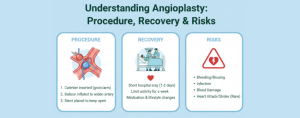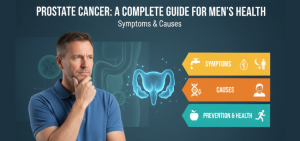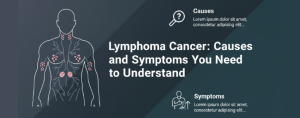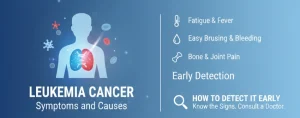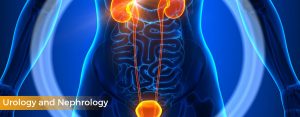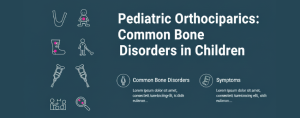Heart health requires specialised medical care, and two important professionals who play key roles in maintaining that heart health are cardiologists and cardiothoracic surgeons. Many people are unsure about their differences, which can create confusion when seeking treatment. Understanding the distinction is important for choosing the right care pathway. In this blog, we will explain the roles clearly by focusing on cardiologist vs cardiothoracic surgeon.
Who Is a Cardiologist?
A cardiologist is a doctor who diagnoses, treats, and manages conditions of the heart and blood vessels. Their focus is usually on medical management rather than surgery.
Types of cardiologists include:
- Interventional cardiologists: Specialise in minimally invasive procedures such as angioplasty and stenting.
- Non-invasive cardiologists: Focus on diagnostic tests, preventive care, and long-term management of heart disease.
- Electrophysiologists: Manage heart rhythm disorders like atrial fibrillation through procedures such as ablation.
Conditions they treat include:
High blood pressure, arrhythmias, heart failure, coronary artery disease, congenital heart problems, and other cardiovascular conditions.
Who Is a Cardiothoracic Surgeon?
A cardiothoracic surgeon is a doctor trained to perform surgical procedures on the heart, lungs, oesophagus, and chest. Their role is focused on operations that repair or replace diseased tissues.
Also Read – What is a Cardiologist?
Types of surgeries they perform include:
- Coronary artery bypass grafting (CABG)
- Heart valve repair or replacement
- Surgery for congenital heart defects
- Lung resections or transplants
- Surgery for tumours in the chest
Conditions they treat include:
Advanced coronary artery disease, valve disorders, congenital defects, lung cancer, and severe chest injuries requiring surgical repair.
Key Differences Between a Cardiologist and a Cardiothoracic Surgeon
| Aspect | Cardiologist | Cardiothoracic Surgeon |
| Focus | Diagnosis and medical management | Surgical treatment of heart and chest diseases |
| Procedures | Angioplasty, stenting, and diagnostic tests | Bypass surgery, valve replacement, lung surgery |
| Education | Specialises in cardiology after a medical degree | Specialises in surgery after a medical degree |
| Role in Patient Care | Provides long-term monitoring and treatment | Performs operations when medical treatment isn’t enough |
| Scope of Practice | Non-surgical, often preventive and diagnostic | Surgical, corrective, and life-saving |
| Approach | Diagnostic and therapeutic | Surgical and interventional |
| Work Settings | Outpatient clinics, hospitals, and catheter labs | Operating theatres, surgical ICUs, hospitals |
When Should You See a Cardiologist?
You may be advised to see a cardiologist if you have symptoms such as chest pain, shortness of breath, fatigue, palpitations, or irregular heartbeat. Cardiologists are also consulted for preventive check-ups, diagnostic testing, and long-term management of high blood pressure, cholesterol, and other risk factors.
When Should You See a Cardiothoracic Surgeon?
A cardiothoracic surgeon becomes involved when surgery is required. Patients are usually referred to them by cardiologists after diagnostic testing. For example, if a patient has blocked arteries that cannot be managed with stents, a cardiothoracic surgeon may perform bypass surgery. Similarly, valve diseases or congenital defects often need surgical correction.
Collaboration Between the Two
Cardiologists and cardiothoracic surgeons often work as a team. A patient’s journey usually begins with a cardiologist, who diagnoses the condition and tries medical or minimally invasive options. If surgery is necessary, the cardiothoracic surgeon steps in to perform the procedure. After surgery, the cardiologist usually continues with long-term follow-up care, ensuring a comprehensive treatment plan.
Conclusion
In the comparison of cardiologists vs cardiothoracic surgeons, the main difference lies in approach: cardiologists focus on diagnosis, medical care, and minimally invasive procedures, while cardiothoracic surgeons perform surgical interventions. Both are essential for complete heart care, often working together to ensure the best outcomes. Consulting the right specialist at the right time is key, and regular heart check-ups can help with early detection and timely treatment.
Also Read – Receive Advanced Cardiothoracic And Vascular Surgery – Get Rid Of Heart & Vascular Issues
Frequently Asked Questions
1. Can a cardiologist perform heart surgery?
No, cardiologists do not perform open-heart surgeries. Their role focuses on diagnosing, preventing, and managing heart conditions using medications, imaging tests, and minimally invasive procedures such as angioplasty or stenting. Surgical interventions are carried out by cardiothoracic surgeons.
2. Do you need a referral to see a cardiothoracic surgeon?
In most cases, patients are referred to a cardiothoracic surgeon by their cardiologist after tests confirm that surgery is required. This ensures that the treatment plan is appropriate and tailored to the patient’s condition.
3. Is open-heart surgery always done by a cardiothoracic surgeon?
Yes, open-heart surgery is performed by a cardiothoracic surgeon, as it requires highly specialised surgical training. These procedures include bypass operations, valve replacements, and repairs for congenital heart defects.
4. Are cardiologists involved after heart surgery?
Yes, cardiologists remain closely involved in follow-up care after surgery. They monitor recovery, adjust medications, and oversee long-term management to reduce future risks and maintain heart health.
5. What is the recovery time after seeing a cardiothoracic surgeon?
Recovery time depends on the type of surgery performed, the patient’s age, and overall health. For major procedures like bypass or valve replacement, recovery may take several weeks to a few months. The surgeon and cardiologist usually work together to create a personalised recovery plan.
Medically Reviewed by — Dr. Saket Bhardwaj (Principal Director & HOD – Cardiology)



